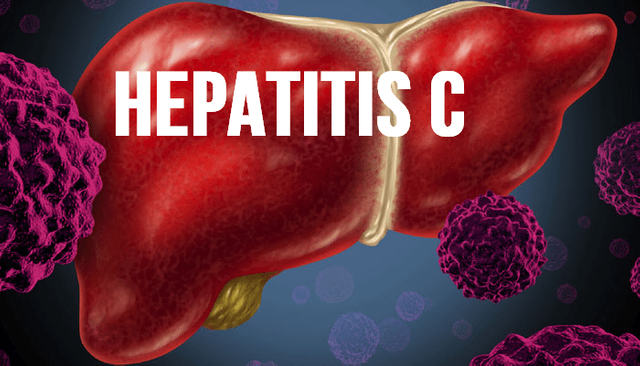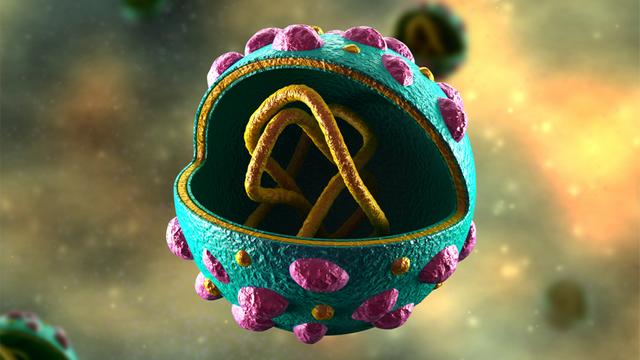The latest treatment for C virus
The latest treatment for C virus

Hepatitis C
It produces hepatitis viral infection usually, but there are other possible causes for hepatitis, and these causes liver autoimmune inflammation ( in English: Autoimmune hepatitis) when the body produces anti - antibodies against liver tissue, and inflammation of the liver which occurs as a result of secondary to certain medications, Toxins, and alcohol. The viral infection of the liver is classified into five main categories, hepatitis A, B, C, D, E, and varies due to the difference of the virus causing it. Hepatitis C is transmitted through direct contact with the body fluids of the infected person, By using injections contaminated with fluorine O Sexual intercourse. [1]

The latest methods to treat hepatitis C
In fact, there is no one drug that is suitable for all patients with C virus . There are many different drugs or genotypes of hepatitis C, Type 1 hepatitis C is the most common type, The extent of liver cirrhosis varies from 8 to 24 weeks, but most often, drugs can remove the virus from the blood within 12 weeks. This is called a sustained viral response (SVR). List of the most recent drugs used to treat hepatitis C: [2]
Daclatasvir : This drug is used for the treatment of type III hepatitis C. It is taken once a day tablets along with another drug called Sofosbuvir. Side effects of dactatasvir include headache or fatigue, It may also slow the heart rate sometimes, requiring a pacemaker.
Elvasvir / Grazoprevir (Elbasvir / Grazoprevir) is an appropriate option for patients with hepatitis C, in addition to cirrhosis or HIV , or have reached a late stage of kidney disease, and other diseases that are difficult to treat, and is taken on Form tablets once daily for the treatment of type I, IV, and VI of viral hepatitis C, a side effect that may be caused by mild headache and tiredness.
Glecaprevir / Pibrentasvir (Glecaprevir / Pibrentasvir): This medicine is used three times a day to treat all types of viral hepatitis C. The side effects of this medicine are headache , fatigue, diarrhea and nausea.
Lidipasvir / Sofosbuvir This medicine is used as a pill once a day for the treatment of type I, IV, V and VI hepatitis C, and its side effects are sleeping problems, tiredness, mild headache, diarrhea .

Ombitasvir / Paritaprevir / Ritonavir This medicine is used to treat type IV hepatitis in the absence of cirrhosis in the liver, and comes in the form of pills taken once a day, and its side effects feeling tired, weakness, and problems Sleep, itching, and stomach upset. It can also cause severe liver damage in people with advanced cirrhosis . To enhance the chance of recovery, another drug may be used along with ribavirin.
Omptasvir / Paritaprevir / Ritonavir with Dasabuvir This treatment is used for the first type of hepatitis, and its side effects are itching, fatigue, difficulty sleeping, and it may cause liver damage in people with fibrosis Advanced liver.
Simeprevir and Sofosbuvir : These drugs are used together to treat the first type of hepatitis, and the side effects of Sufespovir are difficulty sleeping, fatigue, headaches , and abdominal problems, while Simprever causes itching, dry skin, To the sun.
Sofosbuvir / Velpatasvir : This medicine is used to treat all types of hepatitis C, taking one tablet a day, and its side effects feeling tired and headache. Sofosbuvir / Velpatasvir / Voxilaprevir : This medicine is used to treat all types of hepatitis C, taking one tablet a day in the absence of liver cirrhosis and ineffective other treatments for hepatitis, and its side effects headache, diarrhea, nausea , Feeling tired.

Traditional health
Chronic hepatitis C is treated with two main types of drugs until relatively recently: interferon, which stimulates the immune system to attack the virus, and ribaverin, which inhibits the spread of the virus, The interferon is taken as a weekly injection for up to 48 weeks, depending on the patient's condition, and rivafirin should be taken along with the long-acting interferon, capsules, tablets, or syrup, taken Oral twice daily m P food. [3]
Important tips for patients
There are some things that are recommended to help reduce liver damage and prevent the spread of infection to others, including: [3] [4]
- Commitment to a healthy and balanced diet.
- Exercise regularly.
- Refrain from drinking alcohol .
- Stop smoking.
- Do not share personal things, such as toothbrushes or razors with others.
- Do not share needles or injections with others.
- Refrain from using drugs , especially those used by injection.
- Be careful when piercing your body or using a tattoo, by knowing how to clean the puncture and tattoo tools, and the need to use sterile tools for each person.
- Stay away from heterosexual intercourse.

By Ihab Al Ati
To listen to the audio version of this article click on the play image.

Brought to you by @tts. If you find it useful please consider upvoting this reply.
You got a 2.15% upvote from @postpromoter courtesy of @arrihan!
Want to promote your posts too? Check out the Steem Bot Tracker website for more info. If you would like to support the development of @postpromoter and the bot tracker please vote for @yabapmatt for witness!
You got a 4.18% upvote from @upme thanks to @arrihan! Send at least 3 SBD or 3 STEEM to get upvote for next round. Delegate STEEM POWER and start earning 100% daily payouts ( no commission ).